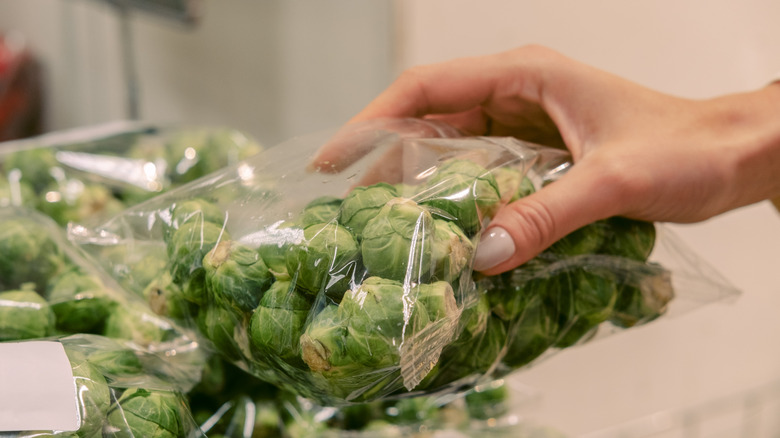
Few vegetables have seen such a rapid change in public opinion, going from disliked to beloved. One such vegetable is now in the spotlight – and it’s perfect for those looking to boost their plant-based protein and fiber intake.
Brussels sprouts, a vegetable that historically sparked many parent-child debates, are now favorites among food lovers and health enthusiasts. They even received a 58% popularity rating in a YouGov survey. Thanks to clever crop engineering that has reduced their bitterness, Brussels sprouts now taste better, making it easier to enjoy these nutrient-rich farm-fresh choices and benefit from the health advantages of cruciferous vegetables in general.
Statistics show that only 10% of Americans consume the recommended daily amount of vegetables, according to the U.S. Centers for Disease Control and Prevention (CDC).
Including Brussels sprouts in your vegetable routine can give your heart and digestive system a beneficial boost. Alexis Law, a registered dietitian at Top Nutrition Coaching, states: “Brussels sprouts are high in fiber, which is essential for a healthy gut and aids in digestion.” A single cup of Brussels sprouts contains approximately 4 grams of fiber.
Keep cholesterol and blood pressure in check

As Law points out, fiber not only aids digestion but also plays a role in lowering cholesterol. According to a fact sheet from the National Lipid Association, consuming between 5 and 10 grams of soluble fiber (like that found in Brussels sprouts) can decrease “bad” low-density lipoprotein (LDL) and total cholesterol by up to 11 points.
In addition to fiber, Brussels sprouts offer nearly 4 grams of protein per cup. Although they aren’t a complete protein (lacking some essential amino acids), they still provide a valuable protein source.
A 2009 study in the International Journal of Refrigeration found Brussels sprouts to be rich in the amino acids proline and glutamic acid. Proline is noted for skin protection, while glutamic acid may help regulate blood pressure.
Protect against blood clots and support your immune system

The benefits of Brussels sprouts extend beyond fiber and protein. Law notes that Brussels sprouts are “also high in vitamin K and vitamin C.” Together, these vitamins assist with blood clotting and boosting immunity. A single cup of Brussels sprouts provides 218 micrograms of vitamin K and 96.8 milligrams of vitamin C, exceeding 100% of the daily recommended values for each vitamin for the average adult.
If you’re hesitant to embrace Brussels sprouts because you’re unsure of how to prepare them, Law offers some cooking tips. “I love when Brussels sprouts are cooked in the air fryer, as it uses minimal oil, cooks quickly, and makes them crispy,” she suggests. “Roasting Brussels sprouts on a large sheet pan is another method to prepare a substantial amount. I like using a little olive oil, garlic powder, and a sprinkle of Parmesan.”
You can also enjoy Brussels sprouts raw in a salad. Preparing them by shaving can make them easier to chew and swallow. However, be aware that consuming raw cruciferous vegetables like Brussels sprouts may cause stomach discomfort, bloating, and excess gas.




